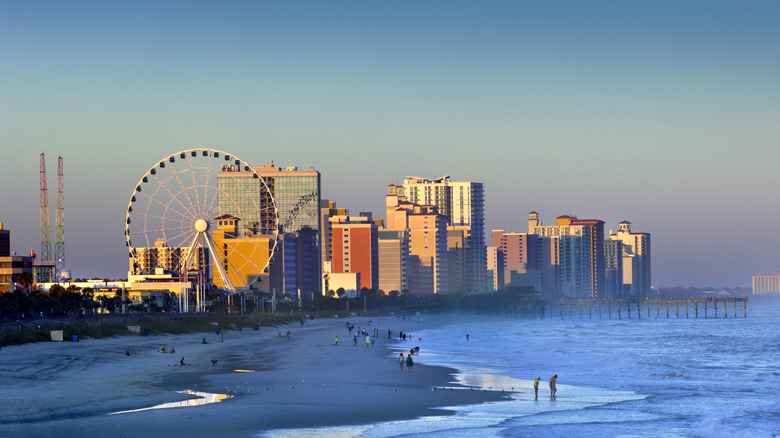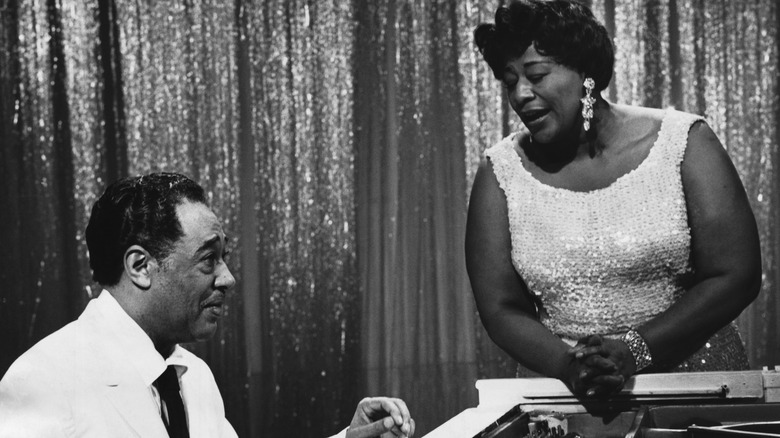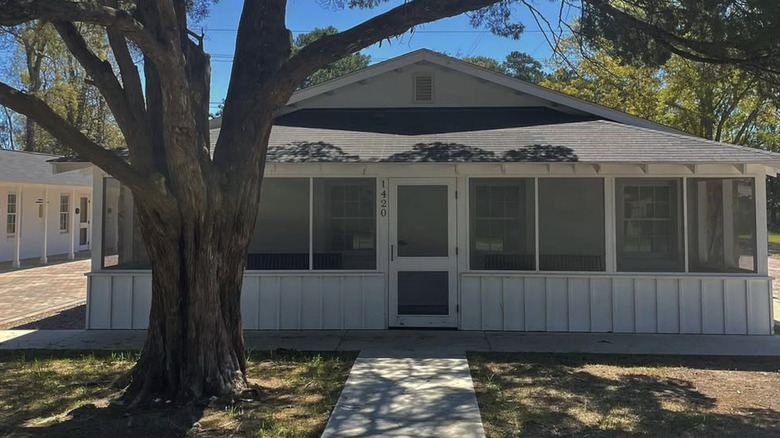A Nightclub Museum In Myrtle Beach Is An Important Piece Of Preserved Musical History
The following article includes descriptions of racism and hate crimes.
While you're visiting South Carolina's Myrtle Beach (or the quiet island alternative, Pawleys Island), you can take a quick detour to visit an important place in the history of music. While you might not immediately know it when you look at the museum and community space that is Charlie's Place in Myrtle Beach today, it was once a stop on the tour for some of America's most iconic performers, including Billie Holiday, Little Richard, Otis Redding, Ella Fiztgerald, Duke Ellington, and Lena Horne. Today, you can visit the place where the club used to be, explore its museum, and participate in the community events held there.
Charlie's Place was part of a network of clubs where blues, jazz, R&B, and rock and roll were born. In an era where racial segregation was a legally enforceable reality of everyday life, Charlie's Place attracted Black and white music lovers alike. Despite intimidation by the local police, the club became a place where people of different races came together to relax, dance, and enjoy each other's company. This attracted the attention of the Ku Klux Klan (KKK), the white supremacist hate group. Despite attacks on the building and its patrons, Charlie's Place remained an important cultural hub for another decade. While the original building no longer exists, its impact on music history left behind a legacy of resilience in the face of brutality and hatred.
Charlie's Place is an important piece of history
From the 1930s to 1960s, Charlie's Place, run by Charlie Fitzgerald, was a shining beacon for the community and a destination for travelers from around the country — especially those using Green Book guides to find locations that were safe for Black travelers. It was a part of the Chitlin Circuit — music venues and nightclubs with primarily Black American patrons that showcased famous Black American performers from around the country. These clubs began during Jim Crow-era segregation as an alternative to the primarily white venues, which, up until the 1960s, refused to serve people of color.
Not only was the club itself an ideal performing space for musicians, but they also had a place to stay when they performed there. While many of the nearby white clubs allowed Black entertainers to perform, they weren't allowed to stay in their hotels. Charlie's Place was next door to the Fitzgerald Motel, which was Black-owned and welcoming to the musicians who performed at the club. Because of this, it became a favorite hub for some of the country's best performers, and many white club-goers chose to visit Charlie's Place instead of the white-only clubs in the area.
The KKK attacked Charlie's Place in 1950, surrounding the club and firing their guns from their cars. The patrons were able to escape safely, but Fitzgerald was attacked and brutally beaten. His attackers were charged, but despite the efforts of famed civil rights attorney Thurgood Marshall, they never faced justice. Fitzgerald was not intimidated into silence, however. The club continued to operate until the late 1960s, and Fitzgerald continued to run it.
How to visit Charlie's Place today
While visiting Myrtle Beach or any uncrowded alternative on the South Carolina coast, you can take a trip to Charlie's Place. The building that used to be Charlie's Place is no longer there, but the Fitzgerald Motel, where some of the greatest musicians in American history stayed, is still standing. While it has been renovated since then, a few rooms were preserved in their original state, giving visitors a glimpse into the past. Those interested in a tour should contact the modern Charlie's Place at (843) 918-1062 to book their spot. Tours are typically only held between 12:30 and 2:30 p.m. on Tuesdays and Fridays, so make sure to plan accordingly.
While Myrtle Beach might not be a stop on the world's number one music destination road trip, you can still hear some incredible music here if you come at the right time. If you visit the Facebook page for Charlie's Place, you can keep up to date on the community events that are scheduled there, including the Myrtle Beach Jazz Festival. You can always stop by the spot to see the sign that marks the former site of Charlie's Club and pay your respects to the giants of the music industry who once performed here.


